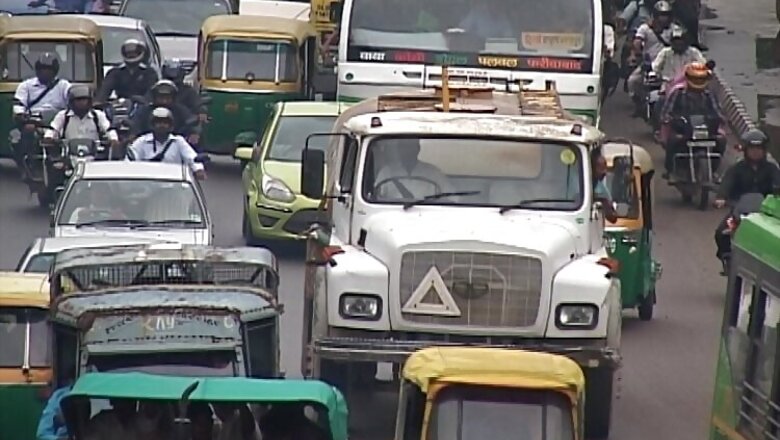
views
New Delhi: The alarming level of pollution in the national capital Delhi has forced the Supreme Court to pass an interim order banning high-powered Diesel Sports Utility Vehicles (SUVs) in the metropolis. It has ordered the transport authorities not to register new 2000+ CC diesel vehicles in the National Capital Region which includes suburban cities of Noida, Ghaziabad, Faridabad and Gurgaon.
According to expert diesel vehicles are the main source of PM 2.5, which is hazardous for our lungs. PM 2.5 is one of the most hazardous pollutants and diesel smoke causes lung cancer. Diesel cars also emit nitrogen oxides and diesel smoke pollutes more during the winter, which is foggy in north India.
The premier trade body FICCI has expressed skepticism over the successful implementation of the SC order. Speaking to media FICCI Chairman Jyotsna Suri said, "We have to see how successful measures like these and odd/even will work. Diesel auto makers will also be unhappy with this decision."
Onkar S Kanwar, Chairman and Managing Director of Apollo Tyres, said, "We have no choice. We will have to adjust with the decision. Diesel cars are cheaper so consumers will have to adjust."
Even the United Kingdom is debating the same issue. Some people feel that diesel vehicles have unfairly been demonized by some environmental lobbies.
According to British newspaper “The Guardian” the car industry has launched a campaign to “challenge the increasing demonisation of diesel” vehicles. The campaign, launched by the Society of Motor Manufacturers and Traders (SMMT), promotes the credentials of the new Euro-6 standards. This Europe-wide law, which limits nitrogen oxide (NOx) emissions from new diesel cars to 80mg/km in order to bring down air pollution levels that breach health regulations in many EU cities.
Diesel cars have come in for increasing criticism in the last year for their larger-than-thought emissions of NOx and small particulates. Last year London mayor Boris Johnson proposed a scheme that would pay diesel car owners up to £2,000 to scrap their vehicle and switch to a cleaner model.
Diesel was supposed to be the answer to the high carbon emissions of the transport sector, a lower emitting fuel that was a mature technology – unlike electric or hydrogen cars. In the early 2000s the Blair government threw its weight behind the sector by changing ‘road tax’ (vehicle excise duty) to a CO2-based system, which favoured diesel cars as they generally had lower CO2 emissions than petrol versions.




















Comments
0 comment